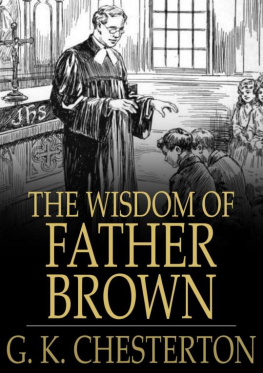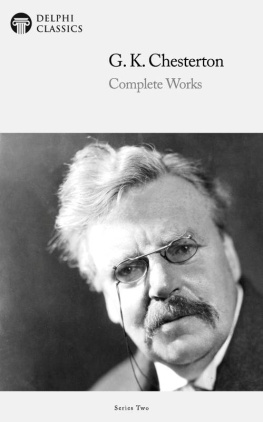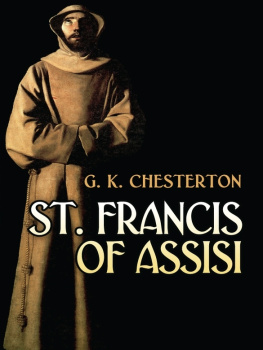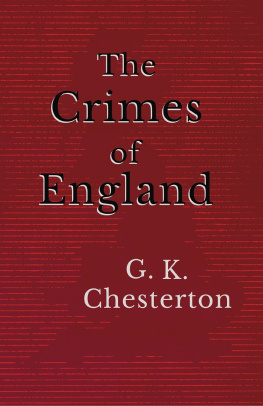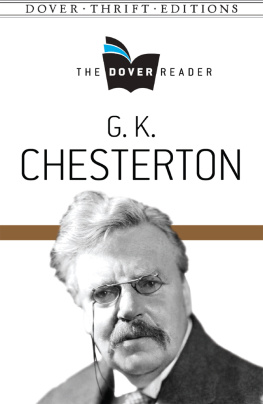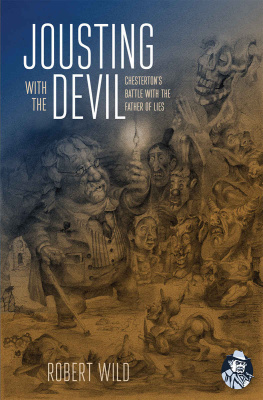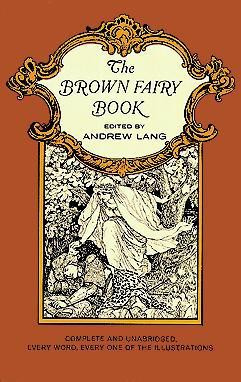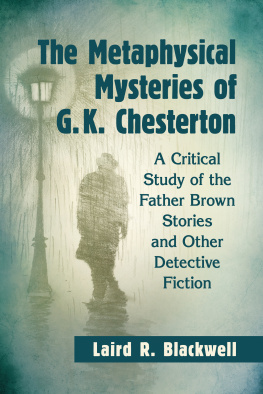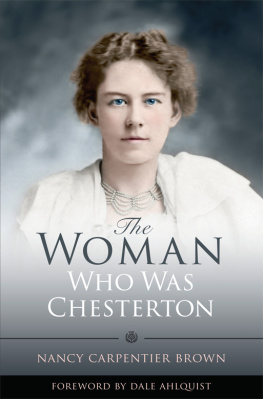THE WISDOM OF FATHER BROWN
* * *
G. K. CHESTERTON
*
The Wisdom of Father Brown
From a 1914 edition.
ISBN 978-1-775414-15-5
2009 THE FLOATING PRESS.
While every effort has been used to ensure the accuracy and reliability of the information contained in The Floating Press edition of this book, The Floating Press does not assume liability or responsibility for any errors or omissions in this book. The Floating Press does not accept responsibility for loss suffered as a result of reliance upon the accuracy or currency of information contained in this book. Do not use while operating a motor vehicle or heavy equipment. Many suitcases look alike.
Visit www.thefloatingpress.com
Contents
*
One - The Absence of Mr Glass
*
THE consulting-rooms of Dr Orion Hood, the eminent criminologist and specialist in certain moral disorders, lay along the sea-front at Scarborough, in a series of very large and well-lighted french windows, which showed the North Sea like one endless outer wall of blue-green marble. In such a place the sea had something of the monotony of a blue-green dado: for the chambers themselves were ruled throughout by a terrible tidiness not unlike the terrible tidiness of the sea. It must not be supposed that Dr Hood's apartments excluded luxury, or even poetry. These things were there, in their place; but one felt that they were never allowed out of their place. Luxury was there: there stood upon a special table eight or ten boxes of the best cigars; but they were built upon a plan so that the strongest were always nearest the wall and the mildest nearest the window. A tantalus containing three kinds of spirit, all of a liqueur excellence, stood always on this table of luxury; but the fanciful have asserted that the whisky, brandy, and rum seemed always to stand at the same level. Poetry was there: the left-hand corner of the room was lined with as complete a set of English classics as the right hand could show of English and foreign physiologists. But if one took a volume of Chaucer or Shelley from that rank, its absence irritated the mind like a gap in a man's front teeth. One could not say the books were never read; probably they were, but there was a sense of their being chained to their places, like the Bibles in the old churches. Dr Hood treated his private book-shelf as if it were a public library. And if this strict scientific intangibility steeped even the shelves laden with lyrics and ballads and the tables laden with drink and tobacco, it goes without saying that yet more of such heathen holiness protected the other shelves that held the specialist's library, and the other tables that sustained the frail and even fairylike instruments of chemistry or mechanics.
Dr Hood paced the length of his string of apartments, bounded as the boys' geographies sayon the east by the North Sea and on the west by the serried ranks of his sociological and criminologist library. He was clad in an artist's velvet, but with none of an artist's negligence; his hair was heavily shot with grey, but growing thick and healthy; his face was lean, but sanguine and expectant. Everything about him and his room indicated something at once rigid and restless, like that great northern sea by which (on pure principles of hygiene) he had built his home.
Fate, being in a funny mood, pushed the door open and introduced into those long, strict, sea-flanked apartments one who was perhaps the most startling opposite of them and their master. In answer to a curt but civil summons, the door opened inwards and there shambled into the room a shapeless little figure, which seemed to find its own hat and umbrella as unmanageable as a mass of luggage. The umbrella was a black and prosaic bundle long past repair; the hat was a broad-curved black hat, clerical but not common in England; the man was the very embodiment of all that is homely and helpless.
The doctor regarded the new-comer with a restrained astonishment, not unlike that he would have shown if some huge but obviously harmless sea-beast had crawled into his room. The new-comer regarded the doctor with that beaming but breathless geniality which characterizes a corpulent charwoman who has just managed to stuff herself into an omnibus. It is a rich confusion of social self-congratulation and bodily disarray. His hat tumbled to the carpet, his heavy umbrella slipped between his knees with a thud; he reached after the one and ducked after the other, but with an unimpaired smile on his round face spoke simultaneously as follows:
"My name is Brown. Pray excuse me. I've come about that business of the MacNabs. I have heard, you often help people out of such troubles. Pray excuse me if I am wrong."
By this time he had sprawlingly recovered the hat, and made an odd little bobbing bow over it, as if setting everything quite right.
"I hardly understand you," replied the scientist, with a cold intensity of manner. "I fear you have mistaken the chambers. I am Dr Hood, and my work is almost entirely literary and educational. It is true that I have sometimes been consulted by the police in cases of peculiar difficulty and importance, but"
"Oh, this is of the greatest importance," broke in the little man called Brown. "Why, her mother won't let them get engaged." And he leaned back in his chair in radiant rationality.
The brows of Dr Hood were drawn down darkly, but the eyes under them were bright with something that might be anger or might be amusement. "And still," he said, "I do not quite understand."
"You see, they want to get married," said the man with the clerical hat. "Maggie MacNab and young Todhunter want to get married. Now, what can be more important than that?"
The great Orion Hood's scientific triumphs had deprived him of many thingssome said of his health, others of his God; but they had not wholly despoiled him of his sense of the absurd. At the last plea of the ingenuous priest a chuckle broke out of him from inside, and he threw himself into an arm-chair in an ironical attitude of the consulting physician.
"Mr Brown," he said gravely, "it is quite fourteen and a half years since I was personally asked to test a personal problem: then it was the case of an attempt to poison the French President at a Lord Mayor's Banquet. It is now, I understand, a question of whether some friend of yours called Maggie is a suitable fiancee for some friend of hers called Todhunter. Well, Mr Brown, I am a sportsman. I will take it on. I will give the MacNab family my best advice, as good as I gave the French Republic and the King of Englandno, better: fourteen years better. I have nothing else to do this afternoon. Tell me your story."
The little clergyman called Brown thanked him with unquestionable warmth, but still with a queer kind of simplicity. It was rather as if he were thanking a stranger in a smoking-room for some trouble in passing the matches, than as if he were (as he was) practically thanking the Curator of Kew Gardens for coming with him into a field to find a four-leaved clover. With scarcely a semi-colon after his hearty thanks, the little man began his recital:
"I told you my name was Brown; well, that's the fact, and I'm the priest of the little Catholic Church I dare say you've seen beyond those straggly streets, where the town ends towards the north. In the last and straggliest of those streets which runs along the sea like a sea-wall there is a very honest but rather sharp-tempered member of my flock, a widow called MacNab. She has one daughter, and she lets lodgings, and between her and the daughter, and between her and the lodgerswell, I dare say there is a great deal to be said on both sides. At present she has only one lodger, the young man called Todhunter; but he has given more trouble than all the rest, for he wants to marry the young woman of the house."
Next page
